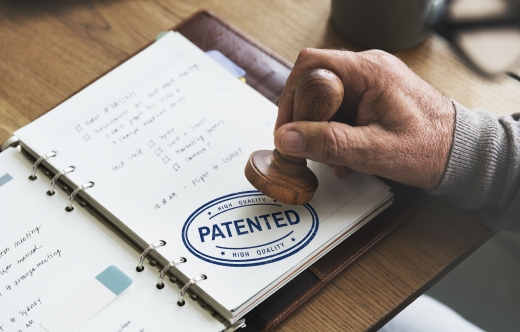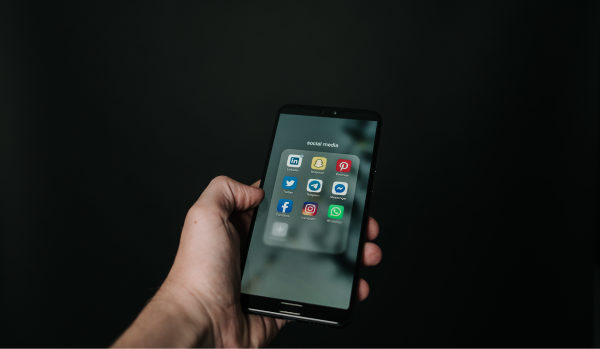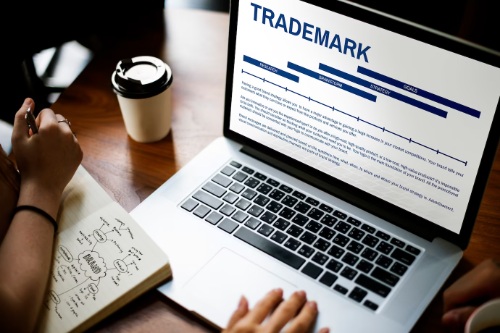Intellectual property (IP), already difficult to protect, has become still harder to defend in the age of social media. IP refers to the legal rights of individuals or entities over their creations or inventions. These include designs, trademarks, trade secrets, literary and artistic works, and other forms of creative expression.
Ensuring that creators have exclusive rights to their intellectual property helps foster a thriving environment for creativity, investment, and technological advancement. These rights also help preserve competitive advantages and generate license fees for companies and individuals. Only when their intellectual property is protected, creators can profit from their products.
Types of Intellectual Property
Here’s an overview of the four main types of intellectual property, as well as their scope of protection:
- Copyrights: Copyright is a legal protection granted to the creator of an original work of authorship, such as a book, movie, song, or software. The right to reproduce, distribute, display, perform, and create derivative works based on the original work is included in the scope of protection. Depending on the jurisdiction, copyright protection lasts for the creator’s lifetime plus several years after their death.
- Trademarks: A trademark is a symbol, word, phrase, or design that identifies and distinguishes the source of a particular product or service. It can be applied to brand names, logos, and slogans. Trademarks are used to prevent confusion among consumers and to protect the reputation and goodwill of a business. The scope of protection includes the right to use the trademark in commerce as well as the right to prevent others from using a similar mark that may cause consumer confusion. Trademark protection is valid for as long as the mark is used in commerce.
- Patents: A patent is legal protection granted to an inventor for a new and useful invention, such as a machine, process, or chemical compound. It gives the owner the exclusive right to make, use, and sell the invention for a certain period of time (usually 20 years from the date of filing). The scope of protection includes the right to exclude others from making, using, selling, or importing the invention.
- Trade Secrets: A trade secret comprises confidential business information that can give a company a long-term advantage over its competitors. Secrets may include formulas, designs, processes, and customer lists. Trade secrets are protected through nondisclosure agreements and other legal agreements. Rights to restrict others from utilizing or disclosing trade secrets are typically included in the scope of protection. Trade secret protection lasts as long as the information is kept private.
Each type of intellectual property protection provides different benefits for its owners, and choosing the right type depends on the creation, the industry, and the business goals. Creators and businesses need to understand the different types of IP and their uses to protect their innovations and assets.

Image Credits: Freepik
Social Media’s Impact on Intellectual Property
Social media platforms have made it simpler for artists to share their work and reach a larger audience, but they have also made it easier for others to steal and misappropriate their creations. This paradoxical development has had a substantial impact on intellectual property protection.
The unauthorized use of copyrighted information, such as photographs, music, and films, is a growing concern. Social media platforms have also given rise to new types of intellectual property, such as user-generated content, social media handles, and hashtags. Protecting these types of IP requires a new approach that integrates copyright, trademark, and contract law.
Detecting and monitoring unlawful content is becoming increasingly difficult because of the speed and volume with which content is disseminated on social media. Yet, social media platforms are increasingly being held accountable for IP infringement that occurs on their networks due to the increased demand to build efficient IP enforcement tactics.
We Value Reputation,
Let’s Rebuild Yours.
A Positive Reputation is Priceless. Value and Protect It.
Risks and Challenges of Social Media to IP
Social media platforms have provided new methods for creators and businesses to reach customers and market their products and services, but they have also generated fresh challenges for intellectual property enforcement. A few of those challenges include:
- Content volume and speed: Social media platforms generate massive amounts of content every day, making it difficult to monitor all of it for potential intellectual property infringements. Also, because social media platforms operate in real-time, content can be quickly shared and disseminated, making it difficult to identify and remove infringing content before it spreads.
- Identifying copyrighted content: It can be difficult to identify unauthorized content on social media platforms since it can be uploaded in a variety of formats, including photographs, videos, and text. Platforms’ automated content identification technologies may not always correctly identify IP infringement, particularly for new types of IP content.
- Global reach: Because social media platforms have a global reach, IP holders must contend with differing rules and regulations in different countries. This can lead to variations in the enforcement of intellectual property rights, making it difficult to enforce IP violations across all locations.

Image Credits: Pexels
Strategies for Protecting IP on Social Media
Despite the nebulous information and rules that are still developing around IP protection on social media, some good starting points for content creators include:
Register your IP: Registering intellectual property, such as trademarks and copyrights, is foundational to establishing ownership and gaining legal protection against infringement.
Include IP policies in social media policies: Including IP policies in your social media policies helps set expectations for how employees and partners should use your IP on social media. The policy should both outline guidelines for creating and sharing content that includes your IP and provide clear consequences for any violations.
Monitor social media platforms for potential infringement: Conducting regular searches for IP on social media platforms can identify potential infringement. Social media monitoring software and tools can help automate this process.
Educate employees and partners on IP protection: Educating employees and partners on the importance of IP protection can help prevent accidental infringement. Provide training on how to properly use and attribute your IP on social media platforms.

Image Credits: Freepik
Enforce your IP rights: If you identify potential infringement, take action to enforce your IP rights. This can include sending a cease and desist letter, filing a DMCA (Digital Millennium Copyright Act) takedown notice, or pursuing legal action.
Use social media platforms’ IP protection tools: Many social media platforms have tools in place to help protect IP, such as content recognition technology and IP reporting systems. As a creator, you can leverage these tools to monitor and report potential infringement.
Monitor competitors’ social media accounts for potential infringement: Regularly monitoring competitors’ social media accounts for potential infringement of your IP can help you identify and address any issues before they become a bigger problem.
Taking these steps along with educating yourself and your team about IP norms and best practices can help prevent infringement of your IP and protect your business’s valuable assets.
Take charge of safeguarding your Intellectual Property.
Act now to secure your innovations.












